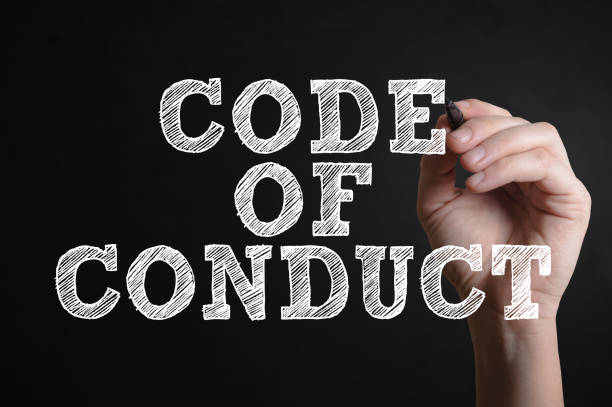Understanding your organization’s HR policies is key to navigating the workplace effectively. These policies outline what’s expected of you and what you can expect in return, creating a foundation for mutual trust. This blog dives into essential HR policies, helping you understand their purpose, how they impact you, and the benefits they bring to the workplace.
Specific Policies
1. Code of Conduct
The code of conduct defines acceptable behavior at work, setting the tone for professionalism and respect. It includes guidelines on:
- Workplace etiquette and communication.
- Dress codes and punctuality.
- Handling conflicts with professionalism.
Knowing the code of conduct helps you avoid misunderstandings and aligns your behavior with organizational values. Familiarize yourself with these rules to maintain a positive reputation.

2. Anti-Harassment and Anti-Discrimination
These policies ensure a safe and inclusive workplace for everyone. They typically cover:
- Zero tolerance for harassment and discrimination based on race, gender, religion, or other characteristics.
- Reporting procedures for violations.
- Steps the company takes to address complaints.
By understanding these policies, you can contribute to a supportive environment and know the steps to take if you experience or witness inappropriate behavior.
3. Leave and Attendance Policies
Leave policies detail the types of leave you’re entitled to, such as:
- Sick leave, vacation days, and parental leave.
- Unpaid leave options for personal emergencies.
- The process for applying for leave and the required notice period.
Attendance policies emphasize the importance of being present and punctual, ensuring smooth workflow and team coordination.
4. Workplace Safety
Your employer’s safety policies protect your physical and mental well-being. These policies include:
- Health and safety standards.
- Emergency evacuation procedures.
- Reporting workplace hazards or unsafe conditions.
Following these guidelines ensures a safe workplace for you and your colleagues.
5. Data Privacy and Confidentiality
With digital security risks increasing, organizations emphasize data privacy. These policies typically outline:
- The importance of safeguarding company and employee information.
- Acceptable use of company devices and systems.
- Consequences of data breaches or unauthorized access.
Adhering to these policies protects sensitive information and upholds trust.
6. Grievance and Conflict Resolution
Conflict is inevitable in any workplace, but clear policies provide a roadmap for resolving issues. These typically include:
- How to report grievances or workplace conflicts.
- Steps HR takes to investigate and mediate disputes.
- Ensuring confidentiality and impartiality during the process.
Understanding this policy gives you confidence in addressing issues constructively.
Outcomes and Benefits
1. Fostering a Positive Workplace Culture
HR policies shape the workplace culture by promoting respect, accountability, and inclusivity. When employees understand and follow these policies, the result is:
- A more harmonious and respectful work environment.
- Increased trust between employees and management.
- Greater collaboration and teamwork.
For example, anti-discrimination policies encourage diversity, which leads to fresh perspectives and innovation.
2. Ensuring Legal and Ethical Compliance
Compliance is critical to avoid legal risks and maintain ethical standards. Clear HR policies:
- Protect employees from exploitation.
- Help organizations comply with labor laws.
- Reduce the likelihood of legal disputes or penalties.
For instance, policies on fair wages and working hours ensure adherence to employment laws, safeguarding employee rights.
3. Enhancing Employee Well-Being and Satisfaction
Transparent policies eliminate ambiguity, reducing stress and boosting morale. Examples include:
- Leave policies supporting work-life balance.
- Grievance procedures offering a platform to address concerns.
- Safety policies prioritizing physical and mental health.
Satisfied employees are more likely to stay with the company, reducing turnover rates.
4. Boosting Productivity and Engagement
HR policies create clarity, enabling employees to focus on their roles without unnecessary distractions. Benefits include:
- Defined expectations fostering accountability.
- Conflict resolution processes minimizing disruptions.
- Training programs enhancing skills and confidence.
Engaged employees contribute more effectively to organizational goals, driving success.
Conclusion
HR policies are more than just rules; they are the backbone of a functional and fair workplace. By understanding these essential policies, you not only protect yourself but also contribute to a positive and productive environment. Take the time to review your company’s policies and ask HR for clarification when needed.
Stay informed, stay engaged, and make the most of your workplace experience.
featured image by pixele.com

